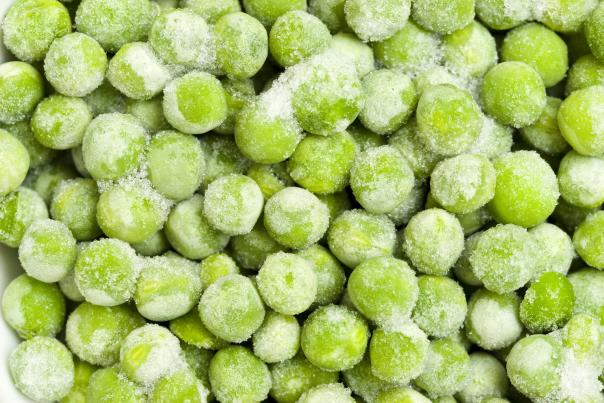
When you think of frozen food, what springs to mind? Could it be the convenience of popping a frozen pizza into the oven or the guilty pleasure you get from finishing a tub of your favourite ice cream whilst watching your go-to movie.
Whilst these are both equally appealing, frozen food offers much more than this; it provides nutrition, food safety, and quality.
One in three (32%) of us believes frozen food is inferior to fresh food, with 57% of Britons asked, having concerns about its quality. What is interesting, however, is that half of those who think frozen food is better than fresh food, think that frozen food is fresher than fresh food.
That suggests a significant level of confusion, but the British Frozen Food Federation says that, contrary to common belief, frozen food is not a compromise on quality. Let’s unpack why.
Nutrition
Frozen foods are often frozen shortly after harvest. The freezing process locks in vital vitamins, minerals, flavours and textures, preserving the nutritional value and quality of food whilst at its peak freshness.
Additionally, freezing pauses the spoilage that can happen in fresh food during transportation and storage. Canned foods often go through long cooking processes at high temperatures, which can lead to nutrient loss, and they commonly contain added salt, sugar, or preservatives, affecting their overall nutritional profile.
Frozen foods, on the other hand, typically have fewer additives, with fruit and vegetables usually being frozen without any additional processing. Opting for frozen food therefore doesn’t mean settling for poor quality; in reality, it often means you’re getting better quality instead.
Safety
Freezing food to temperatures of -18°C or lower deactivates or kills the growth of harmful microorganisms, which can cause food spoilage and pose serious health risks.
This means you can enjoy your frozen meals with the confidence that no hidden bacteria, yeasts, or moulds will develop. However, it’s important to note that freezing doesn’t kill all microorganisms.
When frozen food is defrosted, these microorganisms can become active again, meaning good cooking practices are essential to ensure the safety of your food. Make sure you cook your food until it is steaming hot and cooked through. To be more precise, this means that the core of your food must reach at least 70°C for 2 minutes.
The Rise of the Frozen Aisle
A growing number of shoppers are discovering that frozen food is delicious and high in quality, as well as excellent value for money. As this awareness has spread, the frozen food aisle has experienced a renaissance, with diverse and premium innovations constantly hitting supermarket shelves.
1. Culinary Diversity: Frozen food is no longer limited to a few British freezer staples like potato smiley faces and turkey dinosaurs. The frozen aisle now offers a wide array of dishes from various cultures and cuisines from all around the world.
Gyoza’s, onion bhajis and Korean fried chicken name just a few tasty foods for you to taste. You can even get your hands on those trendy bao buns that are popping up all over Instagram right from the frozen aisle.
2. The Big Night In: Due to increasing bills across the board, most of us have less disposable income to spend on luxuries such as eating out. This has brought about the rise of the ‘Big Night In’.
Many shoppers are upgrading to more premium frozen foods for special occasions and weekend treats, from artisan dine-in boxes to luxury frozen desserts. These products can offer you the experience of restaurant-quality dining without the hefty price tag, making them a favourite among those seeking a bit of luxury at home.
3. Changing Consumer Diets: An increasing number of you are embracing vegetarian and vegan lifestyles. In July 2023, vegans, vegetarians and flexitarians made up 21% of the British public. This means that more consumers are on the hunt for mouth-watering meal options that are high-quality, nutritious and cater to their dietary requirements.
In fact, 21% of the British public said they are more likely to buy frozen food if new product developments are high quality and diet specific, such as vegan. With this change in consumer diets has come a diverse range of frozen food that makes vegetables and meat alternatives the star.
Crispy bang bang cauliflower bites and delicious sweet potato falafel balls are just a couple of examples of frozen food innovations that cater to all tastes and requirements.
Embrace the Frozen Food Revolution
Keep in mind that quality isn’t determined by whether your veggies are kept in the fridge instead of the freezer. Quality encompasses nutritional benefits, safety advantages, taste and culinary diversity. The next time you browse the frozen aisle, keep an eye out for those diverse, premium innovations that are reshaping frozen food.
Frozen Food Week, the annual celebration, takes place this year from October 14-20. For more information about the week or frozen food more generally, visit: https://bfff.co.uk/.